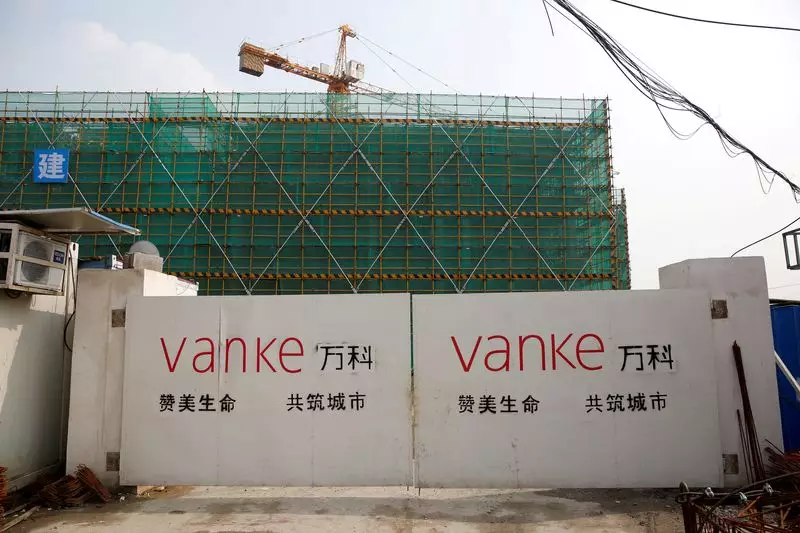As China’s real estate market teeters on the brink of collapse, the spotlight has shifted to one of its largest developers: China Vanke. After multiple attempts to address a liquidity crisis that has plagued the sector for the past five years, authorities in Beijing are reportedly considering a more direct intervention. Unlike previous interventions that skirted the moral hazard of bailing out debt-ridden companies, this time, the Chinese government might lean towards a state-backed rescue of Vanke, a company that has long been considered a bellwether for the industry.
The Unfolding Crisis
The urgency of the situation escalated dramatically following the recent detainment of Vanke’s CEO, as reported by state media outlets—an event that was swiftly retracted, raising eyebrows and uncertainties about the firm’s governance. This unexpected turn of events casts a shadow over Vanke’s already precarious financial state, leading to immediate downgrades by all three global credit rating agencies. Analysts point to Vanke’s dwindling financial flexibility and dire sales projections for the upcoming year as key indicators of the company’s steep decline.
Currently facing significant debt maturity pressures—$3.4 billion due in 2023, with an imminent repayment looming on January 27—Vanke’s ability to navigate through this financial storm is in serious doubt. The Shenzhen government, where Vanke is headquartered, is reportedly ramping up discussions with local state-owned enterprises to devise plans to mitigate debt risks and facilitate asset disposals. The interconnectedness of Vanke’s fate with that of Shenzhen Metro, its primary state-backed shareholder, compounds the urgency of these discussions.
Vanke, historically viewed as a resilient player in China’s tumultuous property landscape, seems to be losing its sheen. Having once held a robust position in a market dominated by giants like Evergrande, Vanke’s fall to fifth in sales value last year has sent ripples of concern throughout the sector. Homebuyers, who recently showed signs of stabilizing in their confidence, may now reconsider their investments if Vanke’s troubles continue unabated. The fear is that a default could trigger a fresh wave of anxiety among banks and investors, further tightening the financial screws on developers still standing.
The perception of Vanke as a stabilizing force in the sector is being challenged. Financial experts warn that Vanke’s crisis could be the tipping point that undermines years of efforts by the Chinese government to stabilize the property market. With homebuyer confidence hanging by a thread, many predict that banks may tighten lending further, making it difficult for other developers to secure the funds needed to avoid a similar fate.
The notion of a full-scale government takeover looms large, though it is not without precedent. The calamity experienced by China Evergrande, which was forced into liquidation last year, showcases the drastic measures that have been previously taken within this sector. Should Beijing decide to intervene with Vanke, analysts agree that it could involve a combination of asset purchases by other state firms and ensuring access to funding without necessarily pouring fresh capital into the company.
Such a rescue operation would not simply be a matter of preserving a corporation. It carries broader implications for the real estate market and the overall financial stability of China. A successful intervention could signal a commitment from the Chinese government to protect the housing market and provide a safety net for homebuyers. Conversely, failure to act might risk plunging the market deeper into turmoil, eroding the hard-won confidence of the public and investors alike.
The unfolding saga of China Vanke encapsulates the precarious balance the Chinese government must strike between preventing financial collapse and avoiding moral hazard. While the immediate future remains uncertain, the potential for a government intervention to stabilize Vanke provides a glimmer of hope in an otherwise bleak landscape. Yet, this scenario raises important questions about the long-term sustainability of such interventions, particularly in a market that has already seen too many dramatic collapses. As policymakers grapple with these challenges, the fate of not just Vanke, but the entire Chinese property market hangs in the balance.

